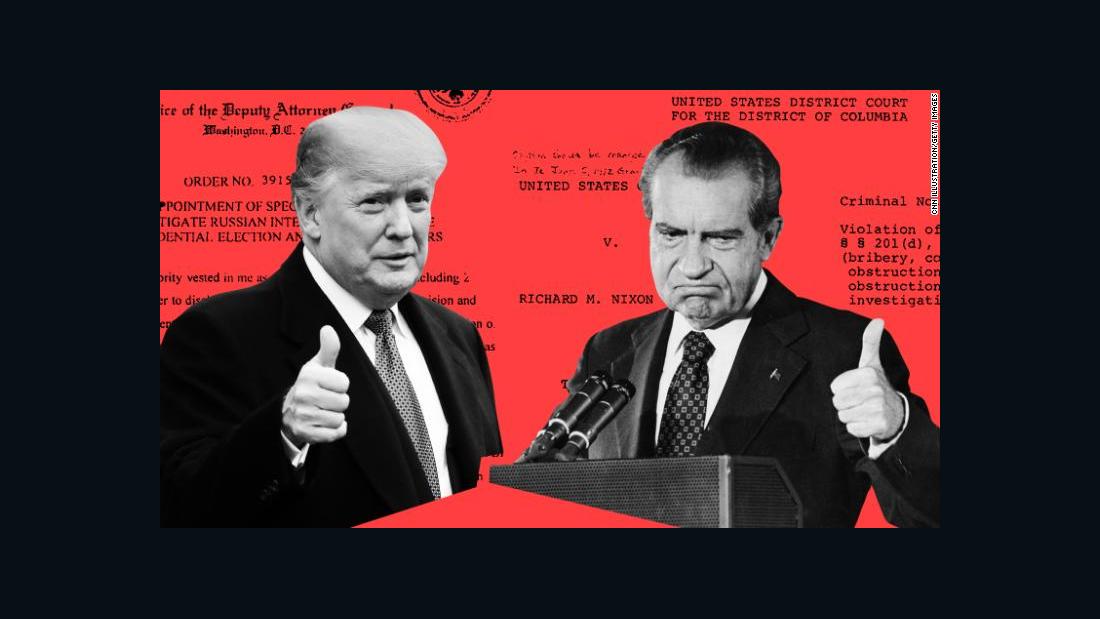Analysis: Trump probably can’t pardon himself. He may still try
Between now and then, we can expect to see the last-minute pardon-fest undertaken by most presidents — which any betting person would wager Trump is going to undertake in a very big way.
There’s a long list of other people Trump could also grant the favor of a presidential pardon. One question that will loom until he leaves office is whether he could grant that favor to himself.
Why would Trump need a pardon?
It may very well be an academic question since Trump does not currently seem to be facing federal criminal investigations. His attorney general, Bill Barr, has made very clear he’d follow existing Department of Justice guidance that prevents a sitting President from being charged with a crime.
Yet Trump’s former lawyer, Michael Cohen, has served time in jail for breaking federal campaign finance law to engineer hush money payments in 2016 to women who said they had affairs with the soon-to-be President. There’s audio of Trump discussing the payments. It is, perhaps, conceivable he could pardon himself for breaking election law.
Those payments are also at the center of an inquiry into Trump by the Manhattan district attorney, who has been seeking Trump’s financial records in a long-running court battle.
But presidential pardons do no good for state crimes. In terms of these state inquiries into his financial affairs and his now-defunct charity, a federal pardon won’t do him any good in state court in New York.
Trump clearly believes he has the power to pardon himself
He said so back in 2018, after the Russia investigation concluded, Trump claimed the power, but he also pointed out the political jeopardy he’d face in using it.
“As has been stated by numerous legal scholars, I have the absolute right to PARDON myself, but why would I do that when I have done nothing wrong?”
“A pardon is actually in effect an acknowledgment that wrongdoing or a chargeable crime has happened. So he wouldn’t just be looking guilty, he’d be acknowledging that he committed an offense,” Williams said during a November 12 appearance on CNN.
To the extent there’s an open question about self-pardons, it’s because no other US president had the audacity to think he could do it. The Constitution doesn’t expressly forbid it in writing, although it does forbid pardons in cases of impeachment. But that doesn’t mean Trump could do it.
The rules date back to Richard Nixon
The Justice Department’s position was quite simple: “Under the fundamental rule that no one may be a judge in his own case, it would seem that the question should be answered in the negative.”
That’s a legal opinion, not law, but much like the opinion that a sitting president can’t be charged with a crime, these things take on the feel of precedent. Instead, Nixon’s successor and former vice president, Gerald Ford, gave his old boss an unconditional pardon a month later, probably scuttling Ford’s own ambition to be elected President.
Ford made an expansive declaration, wiping Nixon’s slate clean and handing him “a full, free, and absolute pardon unto Richard Nixon for all offenses against the United States which he, Richard Nixon, has committed or may have committed or taken part in during the period from January 20, 1969 through August 9,1974.”
What are Trump’s other options?
Trump does have other moves available to him, according to the memo. He could, like Nixon, resign and hand power in his final days to Vice President Mike Pence, who could pardon him.
He could even temporarily hand Pence power under the 25th Amendment and let Pence, as acting president, pardon him.
“The problem is that’s fraught with peril politically for Mike Pence, because ultimately he would be stepping into a political timebomb,” said Williams, who pointed out Pence very clearly may want to run for president on his own.
It could also open Pence up to allegations of bribery if he and Trump had a pardon agreement in place. Pence would be receiving something of value — the presidency, even for a short time — in exchange for an official act.
This story has been updated with Flynn’s pardon.
![]()


